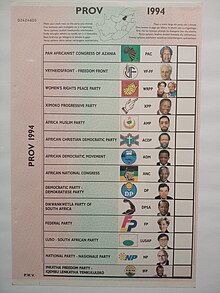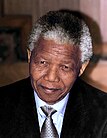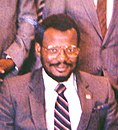
Back Suid-Afrikaanse algemene verkiesing van 1994 Afrikaans الانتخابات العامة في جنوب إفريقيا 1994 Arabic Eleiciones xenerales de Sudáfrica de 1994 AST Eleccions sud-africanes de 1994 Catalan Volby v Jihoafrické republice 1994 Czech Wahlen in Südafrika 1994 German Νοτιοαφρικανικές γενικές εκλογές (1994) Greek Elecciones generales de Sudáfrica de 1994 Spanish انتخابات سراسری ۱۹۹۴ آفریقای جنوبی Persian Élections générales sud-africaines de 1994 French
| |||||||||||||||||||||||||||||||||||||||||||||||||||||||||||||||||||||||||||||||||||||
All 400 seats in the National Assembly 201 seats needed for a majority | |||||||||||||||||||||||||||||||||||||||||||||||||||||||||||||||||||||||||||||||||||||
|---|---|---|---|---|---|---|---|---|---|---|---|---|---|---|---|---|---|---|---|---|---|---|---|---|---|---|---|---|---|---|---|---|---|---|---|---|---|---|---|---|---|---|---|---|---|---|---|---|---|---|---|---|---|---|---|---|---|---|---|---|---|---|---|---|---|---|---|---|---|---|---|---|---|---|---|---|---|---|---|---|---|---|---|---|---|
| |||||||||||||||||||||||||||||||||||||||||||||||||||||||||||||||||||||||||||||||||||||
 | |||||||||||||||||||||||||||||||||||||||||||||||||||||||||||||||||||||||||||||||||||||
| |||||||||||||||||||||||||||||||||||||||||||||||||||||||||||||||||||||||||||||||||||||
| This article is part of a series on the |
| Politics of South Africa |
|---|
 |
|
|


General elections were held in South Africa between 26 and 29 April 1994.[1] The elections were the first in which citizens of all races were allowed to take part, and were therefore also the first held with universal suffrage. The election was conducted under the direction of the Independent Electoral Commission (IEC), and marked the culmination of the four-year process that ended apartheid.
Millions queued in lines over a four-day voting period. Altogether, 19,726,579 votes were counted, and 193,081 were rejected as invalid. As widely expected, the African National Congress (ANC), whose slate incorporated the labour confederation COSATU and the South African Communist Party, won a sweeping victory, taking 62 percent of the vote, just short of the two-thirds majority required to unilaterally amend the Interim Constitution. As required by that document, the ANC formed a Government of National Unity with the National Party and the Inkatha Freedom Party, the two other parties that won more than 20 seats in the National Assembly. The governing National Party polled just over 20%, and was thus eligible for a post of Vice President to incumbent president De Klerk. The new National Assembly's first act was to elect Nelson Mandela as President, making him the country's first black chief executive. He then appointed the Cabinet of Nelson Mandela.
The date 27 April is now a public holiday in South Africa, Freedom Day.
- ^ South Africa: Parliamentary Chamber: National Assembly: Elections held in 1994 Inter-Parliamentary Union





